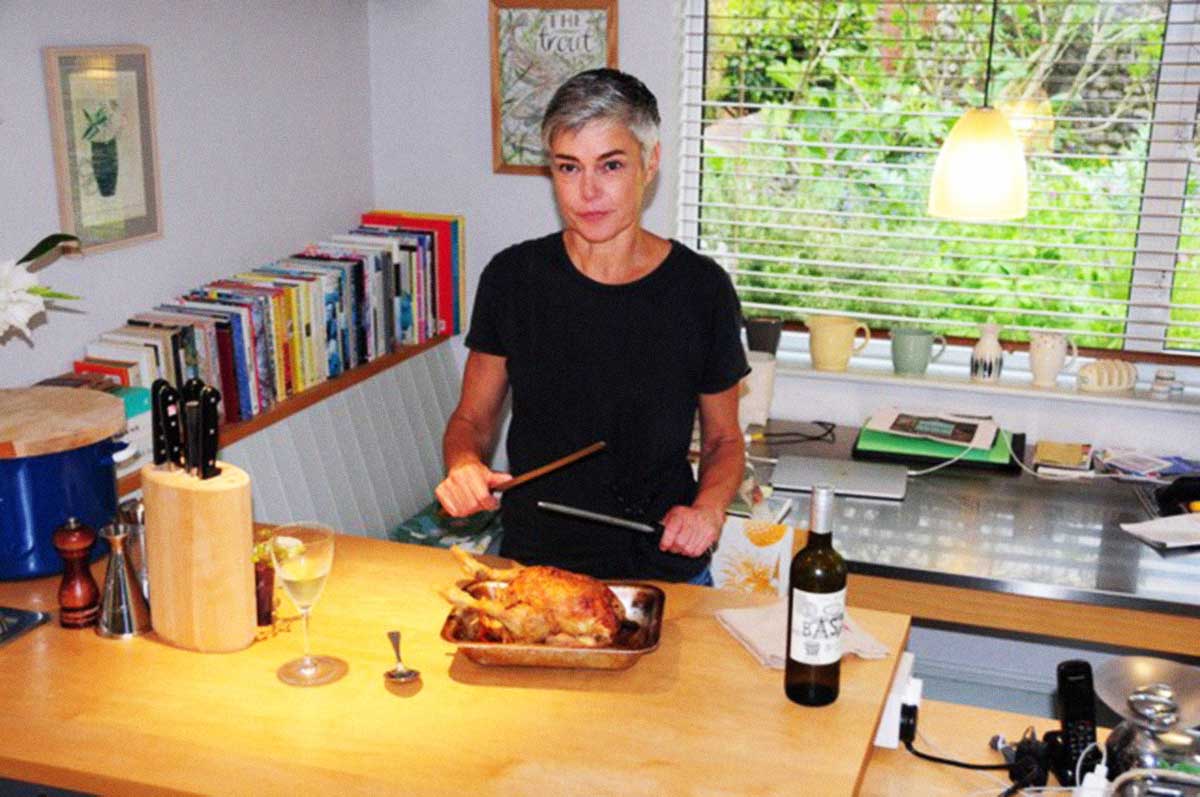Sustain • London Food Link • Articles
Roots to Work: The dietetic health coach
Kate Lewis is a registered dietitian with a background as a chef in London’s restaurant industry. After graduating 18 months ago, she is now working as a dietetic health coach for a health tech start-up.

You used to work as a chef. What inspired your move into dietetics?
Back in 2010 I was considering a career change as my enthusiasm for the industry was fading and I was constantly exhausted. I didn’t realise at the time that I had coeliac disease, which compromises iron absorption and leads to fatigue. It was a bit of a shock to be diagnosed on the very first day of my dietetics degrees and a big coincidence as dietitians are experts in coeliac disease management.
Around this time I was having weekly discussions with an athletics-coach friend – we were both interested in each other’s discipline - and gradually I realised that was my future. Having found my new direction I enrolled on Birkbeck’s Foundation in Life Sciences for Medicine and initially planned to end up in sports nutrition. However during the course of my studies I got inspired by public health dietetics, which is about prevention strategies for populations, rather than clinical management of diseases and conditions in individuals.
Tell us about a memorable ‘lightbulb moment’.
In the third and penultimate year of my degree I studied Public Health (PH) with a brilliant PH dietitian called Michele Sandelson. She demonstrated how deprivation, food choices and health outcomes are closely linked and I found the combination of political and economic factors intriguing. So when I noticed that my peers weren’t sharing my enthusiasm for outcomes frameworks and deprivation indices, the light-bulb glowed…
Then on a PH placement with a third sector organisation I crunched numbers for a report on the hidden sugars in the coffee and hot drinks sector. It’s shocking seeing how the high street brands load calories and sugar into their product lines. The subsequent report supported the call for a sugary drinks duty, which became a reality in the form of the Soft Drinks Industry Levy announced only a short time after the work hit the media. Although the timing was coincidental, it reinforced my interest in being in a sector where I could influence policy.
As PH dietitians are involved in strategies to prevent ‘lifestyle’ diseases (like type 2 diabetes), I can link my background in real food with my interest in sustainability and my knowledge of the impact of diet on health.
What’s the most valuable thing you’ve learned from working in a restaurant?
Work ethic is key. And always try to bring something to the party - restaurants are tough places and no one wants to hear about your hangover/exhaustion/headache.
Over the course of your career, have you seen the food landscape shift?
While the established big restaurant scene grinds on, there’s a counter-movement of creative teams doing interesting and often very technical cooking in cool and interesting spaces and neighbourhoods. London (in particular) is saturated with restaurants nowadays but I don’t see how they’ll all survive once Brexit closes our borders – many chains are already struggling over diminishing trade.
It’s great to see wine bars getting a revival and less emphasis on full restaurant service. I think that’s driven by new world winemakers mostly.
I thought I’d never say this but I’m happy that veganism’s became cool. Despite the relentless promotion of super cheap food there’s a movement away from the low-welfare destructive methods involved in intensive farming. There’s a new youthful movement that’s rejecting the marketing and propaganda for the ethical alternatives.
Lastly, the ‘clean eating’ movement arrived and got debunked, not least by excellent bloggers like The Angry Chef.
What is next on your horizon?
I’d love to do the MSc in Food Policy at City, University of London, but having graduated only a year ago I need to get into the workplace before I consider more studying. Meanwhile I’ll stay in contact by attending their regular Food Research Collaboration events.
To develop in PH I need further experience of community and acute dietetics. So I’m working for a health tech start-up, which has an excellent weight loss programme for people at risk of type 2 diabetes. It’s all about sustainable behaviour change, so we teach our users about cooking and engaging with real food though an app. At some point I’ll definitely want to work for a third sector organisation like Sustain again.
I’m also putting some time into writing basic cooking guides. Cooking and nutrition have only recently returned to the school curriculum and there’s a generation or so who never learnt the basics. There’s a lot of coffee-table cookbooks on the market right now and I think it’s ready for a first principles approach!
Check out others in the Roots to Work series, including The London Brewer, the Natural Chef and the Bakery Social Entrepreneur.
Published Friday 6 July 2018
London Food Link: London Food Link brings together community food enterprises and projects that are working to make good food accessible to everyone in London to help create a healthy, sustainable and ethical food system for all.